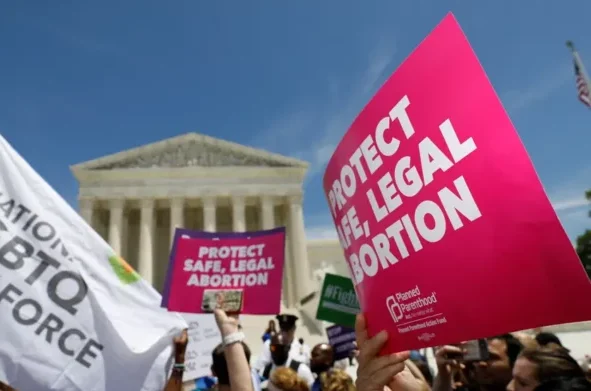The Texas Legislature passed a law prohibiting anyone from providing abortions after as little as six weeks of pregnancy, affecting thousands of women across the state. Georgia is getting pulled back into the pool of bans along with Mississippi, a state that is currently on the main ledger for passing their version of another abortion law going against the case, Roe v. Wade.
Governor Gregg Abbott signed in a law that restricts the aiding and abetting of aborting a fetus with a rhythmic heartbeat, coining the term, the Heartbeat Bill. On Oct. 6, U.S. District Judge Robert Pitman decided to block the State of Texas from enforcing the new ban with the suspicion of Texas officials creating an “unprecedented and aggressive scheme to deprive its citizens of a significant and well-established constitutional right.”
“I am really upset about it,” said student Brooke Foster, a senior at UWG. “Instead of being about right or wrong, life or death, and preserving life, I think it’s more about controlling bodies and power as opposed to we really wanna save a life.”
Private citizens who are willing to report the act of illegal abortion are the front-men responsible for enforcing the law. A bounty of $10,000 has been placed on those who infringe on this ban to create an incentive for citizens. The state of Texas has set up a website, Texasrighttolife.com, to promote whistleblowing. However, the state has had trouble finding a web host for the site after getting cut from the web company GoDaddy for violating its terms of service.
According to the American Pregnancy Association, most women find out that they are pregnant within four to seven weeks of conception from the changes within their bodies. These changes could include morning sickness and fatigue.
“Since most women do not know when they conceived, as it is challenging to know exactly when ovulation occurred, pregnancy is determined from the first day of your last menstrual period (LMP),” the American Pregnancy Association’s website stated.
Georgia passed a law banning abortion after 20 weeks of pregnancy back in 2019, but the law is currently in the process of being federally appealed. In addition to Georgia and
“Throw the law away. That’s that,” said senior Maia Newhouse. “As for one of my homegirls, when she was pregnant, she did not know she was pregnant until she went into labor. She had no idea, she took pregnancy tests, and they all came back negative.”
The state of Mississippi is also attempting to pass an abortion law of its own. They are attempting to limit the time allowed to receive an abortion from 20 weeks to 15. The law is to be heard on December 1st of this year. Most of the country will be greatly affected by the ruling of this case including Georgia. Georgia’s abortion law, H.B. 481 will be under review later this year.
“I feel that it is not really necessary to have that law because usually there are different situations out there,” said first-year student Antonio Flores in response to the Georgia abortion ban. “It really just depends on if you’re financially stable to be able to keep that baby.”
Photo Credits: Kevin Lamarque










